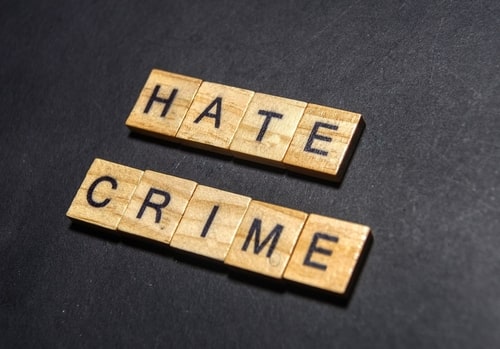Can Hate Crimes Lead to Serious Criminal Charges?
 Hate crimes have been a hot topic of discussion in recent years, with many high-profile incidents making national headlines. But what exactly constitutes a hate crime under Connecticut law? And are these offenses truly as serious as some make them out to be? A Connecticut lawyer can help you if you find yourself with a hate crime charge.
Hate crimes have been a hot topic of discussion in recent years, with many high-profile incidents making national headlines. But what exactly constitutes a hate crime under Connecticut law? And are these offenses truly as serious as some make them out to be? A Connecticut lawyer can help you if you find yourself with a hate crime charge.
What is a Hate Crime in Connecticut?
Under Connecticut General Statutes § 53a-181j, a person commits a hate crime if they intentionally select someone to threaten, harass, or intimidate based on actual or perceived race, ethnicity, religion, disability, sexual orientation, sex, or gender identity or expression. The underlying criminal act could be property damage, assault, harassment, or threatening behavior. What elevates it to a hate crime is the specific intent to target a victim due to their protected characteristics.
Connecticut law also has a separate statute, C.G.S. § 46a-58, which prohibits deprivation of rights through the use of force or threat based on the same protected categories. This allows hate crimes to be prosecuted as a civil rights violation in addition to a criminal offense.
Are Hate Crimes Punished More Severely?
The short answer is yes, hate crimes generally carry enhanced penalties compared to the same underlying offense without the bias motivation. Under C.G.S. § 53a-181j, committing a hate crime is a felony punishable by up to 5 years in prison and a $5,000 fine, even if the underlying crime (e.g. simple assault or criminal mischief) would normally be a misdemeanor.
C.G.S. § 53a-181l allows prosecutors to seek “persistent hate crimes offender” status for defendants with two or more hate crime convictions. This increases the penalty to a class C felony with up to 10 years in prison. Clearly, Connecticut lawmakers believe hate crimes warrant serious consequences.
The Harm Caused by Hate
Some may question whether hate crimes truly merit harsher punishment. After all, the underlying crime is the same regardless of motive, right? While it is true that an assault is still an assault whether motivated by bias or something else, this view ignores the unique harms caused by hate crimes:
-
Psychological trauma: Being victimized specifically because of your identity can cause severe emotional distress, fear, and feelings of vulnerability. Victims often experience anxiety, depression, and post-traumatic stress.
-
Community impact: Hate crimes send a threatening message to the entire community the victim belongs to. This creates a climate of fear and unrest that goes beyond the individual victim.
-
Social fractures: Unchecked hate crimes can exacerbate tensions between different groups and undermine social cohesion. Over time, this erodes the diverse fabric of our communities.
In light of these broader societal harms, enhanced penalties for hate crimes send a clear message that bias-motivated violence is unacceptable and will not be tolerated. It is about protecting vulnerable groups and preserving an inclusive society for all.
Contact a Stamford, CT Criminal Defense Lawyer
If you are facing a charge for a hate crime, you should not try to handle it yourself. When you face a charge like this, it is best to have a Fairfield, CT criminal defense attorney on your side to help with the legalities. Call Law Offices of Daniel P. Weiner at 203-348-5846 to start with a free consultation.







